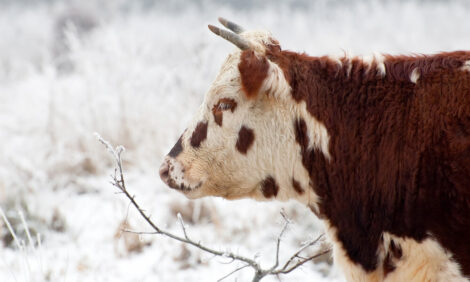



Namibia Gearing up for Three-Fold Markets Boost
NAMIBIA - A supply deal with China and a pending treaty with the US could be a major boost to the Namibian beef industry.Trade lines with South Africa and Zimbabwe are also looking to be revamped Namibia, reports Tawanda Korombo.
The government in Namibia has been urged to enhance disease control in the cattle farming industry to help open up more export markets. The growing export market for beef products was likely to “benefit many of our emerging farmers within the supply chain,” according to Professor Peter Katjavivi, patron of the Ongombe farmers association and also speaker of the national assembly in the country.
Namibia is also keen to revamp beef exports into regional countries such as South Africa and Zimbabwe whose beef sectors are struggling, with Meatco, a large beef producer in the country, saying it had slaughtered as many as 81 352 between February and the beginning of September this year.
Each year, Namibia supplies nearly 500 000 livestock to South Africa after beef sales resumed in August last year. This was after the South African Department of Agriculture imposed new requirements for beef production being imported from Namibia, with which it has strong trade ties.
Namibia’s beef processing industry has also enjoyed favourable markets from South Africa and European countries. The Southern African country exports around 17 000 tons of processed beef products to South Africa and nearly 10 000 tons of prime beef cuts to the European Union, according to the Meat Board of Namibia.
Beef producers in Namibia are gearing up for export opportunities into China, the United States and other European markets. The export markets will provide them with a ready export market that will boost production and provide revenue growth opportunities, experts said this week.
“Export markets are lucrative as they are better priced than local markets. They also provide for opportunities up the value chain, which means more companies will be in business and more people employed,” said economist Moses Moyo.
Rosa Hamukuaja-Thobias, the corporate affairs manager for Meatco, one of the leading beef producers with large processing plants in the country, said this week that the United States Food Safety and Inspection Service was now “drafting regulations to facilitate the import of Namibian beef” into the US market.
The United States Department of Agriculture would also publish the regulations for public comments. It is expected that a final ruling, which experts are anticipating will be made to pave the way for the country to start beef exports most likely before the end of the year.
Namibia has already secured permission to export beef products to China, a massive market that could help the country’s earnings. A signing ceremony has already been held although China was yet to avail a health certificate for the Namibian beef exports to the Asian country.
"One of the important things still to be done is that a health certificate template is needed from China. Conditions of the protocol have to be spelled out in the health certificate and it must be in both Chinese and English. The Directorate of Veterinary Services (DVS) is waiting for these translations to be conducted. Sales can only resume after the certificates have been sorted," Hamukuaja-Thobias was quoted saying by newspaper reports in Namibia.
European countries are very strict on beef import s from African countries. They require that the cattle being slaughtered and processed for their markets be free of diseases.
Namibia is also seeking a raise in its beef export quota to Norway. The country wants to be a major beef exporter as its beef industry remains ahead of its neighbours in the region, helped by close monitoring of farmers’ operations and quality standards, say other experts.
This month, the Meat Board of Namibia conducted a survey “to determine the external perception of the livestock and red meat industries”. It said on Monday that the aim of the survey was to determine shortcomings for the industry and determine how to improve the sector.

Twanda Karombo
Freelance Writer, TheCattlesite.com


